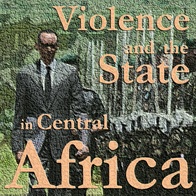
The Burundi Crisis beyond the third term (2/3): local grievances, ethnicity, and the economy
The question of the constitutionality of a third term is absolutely central in the present crisis. The protesters have repeated their view that the constitution does not allow for a third term and expressed their fear of a carving up of the 2000 Arusha Peace agreement. The issues around the third term and Arusha have been widely discussed in the media and other essays. The roundtable tried to take a slightly different viewpoint and explored the key issues of the present crisis beyond the question of the third term: local grievances and post-war reconciliation and integration, the economy (and especially agriculture and aid), and whether the “ethnic factor” is still relevant.

Populism in an FPTP system: UKIP may still succeed if they play the waiting game
Coverage and analyses of the recent British general election of 7 May have focused predominantly on the surprise victory of the Conservatives, the poor showing of Labour, and the close to clean sweep of the Scottish National Party (SNP). The performance of the UK Independence Party (UKIP), meanwhile, was generally perceived to be disappointing for the party of Nigel Farage. Indeed, it has been argued that, despite the high expectations of the past years, UKIP fell well short of causing a ‘Purple Revolution’. At the end of 2014 the party were trending at around 20 per cent in several opinion polls with some excitable elements in the media claiming the party could win as many as 40 seats in the general election. Given this narrative was just six months before the election, their final result of just one seat compounded the apparent failure of Farage’s ‘People’s Army’ to mobilise.

The Burundi crisis (1/3) : (local) forces in presence
When president Nkurunziza announced his intention to run for a third term, serious unrest exploded in the streets of Bujumbura. In the last three weeks, violent clashes with the police have triggered fears of a new civil war and destabilisation of the entire African Great Lakes region. So far, the international community has been unable to calm the situation and 100,000 Burundians have already fled the country. The Oxford Central Africa Forum hosted a round-table on the 15th of May to examine the causes of the current situation and discuss the prospects for peace and democracy in Burundi and the region. It gathered six researchers who have conducted fieldwork in Burundi. We present some of their analysis and findings here in a short series of three articles. In this first post, we explore the forces present on the ground.

The case against directly-elected executive mayors
The main argument against the Directly-Elected Executive Mayor (DEEM) model outlined by George Osborne is its concentration of power in a single person. The assumption of the advocates of DEEMs is there must be individual leadership rather than collegial team leadership. But the advantage of collective leadership is it enables exploration of policy from different perspectives. Colleagues can consider possible impacts of policy in a variety of contexts, spotting pitfalls ahead and the consequences for different people and groups. A single person is unlikely to represent the diverse complexities of a large urban, metropolitan or county region area better than can collective leadership. A DEEM cannot cover all the functions of the local authority. They have to rely on unaccountable …

It is the perception of immigration levels, rather than actual change in local areas, that explains the UKIP vote
Is there evidence that UKIP support is channelled by local concerns about the influx of immigrants? In fact, the UKIP vote is not actually driven by experience of change in local areas. Instead, the UKIP vote is correlated with the perception of levels of immigration.
The renewed interested in the connection between immigration and electoral politics can be traced to the spectacular rise of UKIP. Even though the party secured just one seat in 2015 general election, its anti-immigration rhetoric resonated strongly among certain sections of Britain’s electorate – UKIP polled 13 per cent of the vote and came second in 120 out of 624 contested seats. Although the party originallyfocused around Conservative euroscepticism rather than immigration, relative to supporters of other parties UKIP sympathisers are much more likely to see immigration as the single most important issue facing the country (see figure 1). Aside from party rhetoric, exemplified by Nigel Farage asserting that parts of Britain were becoming like a ‘foreign land’, is there evidence that UKIP support is channelled by local concerns about the influx of immigrants?

The UK government says no to democratic reform
Within hours of the general election Whitehall started making new MPs irrelevant. Even before the new parliament has heard the Queen’s Speech, Whitehall has begun to treat the legitimate and elected part of our political settlement with contempt by abolishing an effective part of parliamentary scrutiny, the Political and Constitutional Reform Select Committee. New MPs will of course know of the battle between parties, but there is also an historic, never ending democratic battle – regardless of party – between the executive (government) and legislature (parliament). It is an uneven battle which – while not covered in new MPs’ induction packs – those who think beyond the tribal will soon become familiar with. It often transcends partisanship since all parties who …

The British syndrome: an abdication of responsibility
There are glaring absences at the heart of the UK elections contest. The new preface to his ‘Essay on Britain, now’ – by one of Britain’s leading political thinkers tells us why. Remarkably, it suggests ways in which to free ourselves from the trap we are in. My book, Mammon’s Kingdom, was born of incredulity. The global financial and economic crisis of 2008 was the second most devastating in the long history of capitalism. Only the crisis that began with the Wall Street crash of 1929 and culminated in the Great Depression of the 1930s did more damage to output, employment and welfare. And, just as the crisis of the 1930s made nonsense of the economic orthodoxy of the previous half …

The future of human rights in the UK
Adam Wagner (One Crown Row Ltd and founder of RightsInfo.org) gave a very timely seminar on Tuesday May 12 for the Oxford Human Rights Hub and the Oxford Martin School Human Rights for Future Generations Programme on the future of human rights in the UK under the new the Conservative majority government. The seminar asked two crucial questions: what will they do? And what can human rights activists do? What Will They Do? The Conservative Manifesto argues that the Human Rights Act, 1998 (HRA) should be scrapped and replaced with a British Bill of Rights based on “common sense,” but that is still consistent with the European Convention on Human Rights (ECHR). However, besides addressing some of the recent controversies …









